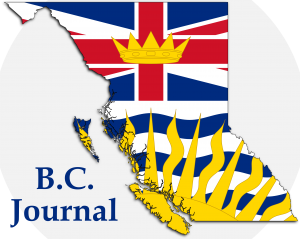Good morning from Coquitlam!
As we announced earlier this week, I am visiting our northern neighbors this weekend to cover the 2013 British Columbia provincial elections, which will conclude this Tuesday, May 14th. Whichever party wins will most likely form B.C.‘s next government and run the province for the next few years… so the outcome has important ramifications both here and for us in the United States.
That’s why I’m here.
 Over the last few weeks and months, I’ve tried to immerse myself in British Columbia politics (well, at least to the extent I could without being there).
Over the last few weeks and months, I’ve tried to immerse myself in British Columbia politics (well, at least to the extent I could without being there).
Though Washington and Idaho share a border with B.C., and though B.C. shares an ecoregion with us, its politics are in many ways more similar to the United Kingdom’s than ours, owing to the province’s British heritage. (There’s a reason it’s called British Columbia!)
In B.C., the two major political parties are the B.C. Liberals and the B.C. New Democratic Party, or BCNDP for short. The Liberals, despite their name, are actually the province’s major conservative party; the NDP is the province’s progressive political party. (Up here, the words liberal and progressive would not be equated as referring to the same worldview and values system as in the United States).
The B.C. NDP is affiliated with the Canadian federal NDP (which became the opposition party in Ottawa for the first time in the last election) but the B.C. Liberals have no formal affiliation with the national Liberal Party, now led by the young and charismatic Justin Trudeau. As this is a provincial election, the B.C. Liberals and the B.C. NDP are squarely focused on regional and local issues; with national issues being viewed through a West Coast lens.
There is a Conservative Party up here, by the way, but it holds no seats in the B.C. Legislative Assembly and is influential only to the extent that it can be a spoiler in a close election, like the Libertarian Party or the Green Party here in the United States. And speaking of the Green Party, British Columbia has a Green Party too — but it shares a status similar to that of the Conservative Party.
British Columbia, like Canada and other Commonwealth realms, is a parliamentary democracy organized according to the Westminster system. That means the head of government (called the Premier in British Columbia) plus his or her ministers come from the legislative assembly. When voters empower one party to govern as the majority party, that party forms the government that runs the province.
Sometimes, the electorate is so split that no one party wins a majority of seats in an election. When this happens, a coalition government of two or more parties usually forms, and governs jointly through a power-sharing agreement.
At present, with the exception of two independents, only members of the B.C. Liberals and B.C. NDP hold seats in the Legislative Assembly in Victoria, and that is not expected to change on Tuesday when the election concludes.
This election is thus primarily a contest between the B.C. Liberals and the B.C. NDP. The Liberals are currently the majority party in the Assembly, and the NDP is the opposition party. The NDP, led by Adrian Dix, is campaigning hard to turn out the Liberals, led by Christy Clark. Clark presently serves as Premier; if her party is defeated on Tuesday, Dix will become the next Premier.
In Canada and in British Columbia, political parties truly run what we in Washington State would call a “coordinated” campaign. The parties provide all sorts of support and logistics for their candidates — including web hosting, as you can see from browsing around the B.C. NDP’s clean and elegant website.
Because the premiership usually goes to the MLA (Member of the Legislative Assembly) who serves as the leader of the majority party, the party leaders are very much the public faces of their respective parties. Their photos are everywhere.
The premiership is a fairly powerful position. Think of it as equivalent to Jay Inslee and Frank Chopp’s positions in Washington State (governor and speaker).
The person serving as premier is essentially the executive of the province, but is indirectly elected, unlike Jay Inslee, Butch Otter, or John Kitzhaber.
A B.C. voter wanting to see Adrian Dix as the next premier can’t actually vote for Dix unless he or she lives in Dix’s riding (riding is Canadian for district). Dix’s chances of becoming premier thus rest on the success of the NDP as a whole in the provincial elections, just as Christy Clark’s fate is tied to that of the B.C. Liberals.
(Clark’s own riding, incidentally, is hotly contested — the NDP has a credible candidate running against her and he could be victorious on Tuesday).
As this is the last Saturday and Sunday before the polls close on Tuesday, it’s GOTV weekend up here in British Columbia, and all of the parties are working to turn out their supporters. Early voting (or advance polls) began here last Wednesday, and continues this weekend in all of the province’s eighty-five ridings.
This morning, B.C. NDP leader Adrian Dix is campaigning with MLA hopeful Chris Wilson in the Coquitlam-Burke Mountain riding, which is one of fifteen to twenty swing ridings. The NDP is hosting a pancake breakfast at Wilson’s campaign office just off Highway 7; Dix is expected to address supporters and the press when he arrives in his campaign bus. That’s what I’m here in Coquitlam to cover. It promises to be a good time; I’ll be posting a writeup (with pictures!) after it’s over.
Stay tuned for more perspective and reporting on the B.C. provincial elections.

Comments are closed.